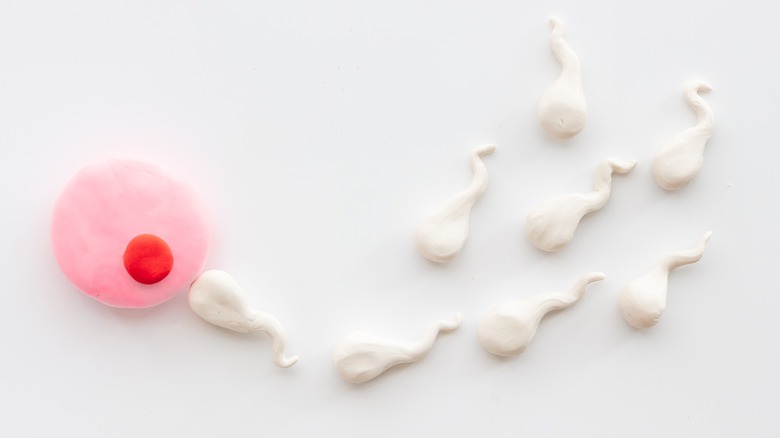Is Vitamin D Affecting Your Fertility?
Vitamin D is a critical nutrient needed by your body to strengthen your bones and muscles, according to the National Health Service (NHS). Adequate levels of vitamin D have been shown to improve your oral health by making teeth and gums stronger and preventing serious diseases like gingivitis. Additionally, it can help balance the amount of calcium in the body particularly as you age.
Unfortunately, vitamin D deficiency is quite common in both children and adults. In the US alone, more than 40% of the people have low vitamin D levels, which may lead to serious diseases, such as rickets and osteoporosis (via Healthline). That's why health experts recommend adults take at least 10–20 micrograms of vitamin D every day.
According to WebMD, a deficiency of this critical vitamin could lead to severe hair loss or alopecia. Women typically need vitamin D to ensure a healthy pregnancy. Moreover, various studies have revealed a link between vitamin D deficiency and its potential negative impacts on fertility in both males and females.
How can vitamin D impact fertility?
In a 2018 study published in the Journal of Environmental Research and Public Health, scientists observed that significantly low levels of vitamin D in women often affect fertility and create problems while conceiving. They also found that those who wish to get pregnant need this critical vitamin to avoid pregnancy complications and skeletal issues in newborns.
The same study also revealed that low levels of vitamin D may cause hormonal imbalance disorders like Polycystic Ovary Syndrome (PCOS). The evidence further linked vitamin D deficiency to endometriosis, a condition that causes tissue growth outside the uterus (via the Mayo Clinic). Both disorders are known to affect the ability to get pregnant.
Another study published in the Reviews of Endocrine and Metabolic Disorders in 2017 explored how sufficient vitamin D in males could prevent fertility issues and instead, boost the quality of semen. The scientists found that males with adequate levels of the vitamin have better sperm motility and enhanced genetic structure in spermatozoa.
Where can you get vitamin D?
Sunlight is the best natural source of vitamin D. In regions with primarily warm seasons and hot climates, vitamin D deficiency may not be as common because people soak in ample sunlight. On the other hand, the effect of low vitamin D is higher in people residing in cold climate regions, typically the northern parts of the US. Because of insufficient sun rays, they become prone to vitamin D deficiency and may face problems with conception.
Some OB-GYNs prescribe vitamin D supplements to those who are unable to get pregnant or live in countries with a cold environment. They are highly potent, boost fertility, and improve pregnancy outcomes. According to Harvard T.H. Chan School of Public Health, you may also want to add certain fish like mackerel, tuna, and sardines to your diet, as they're packed with vitamin D. Dairy products like milk and yogurt are beneficial sources of vitamin D as well.



